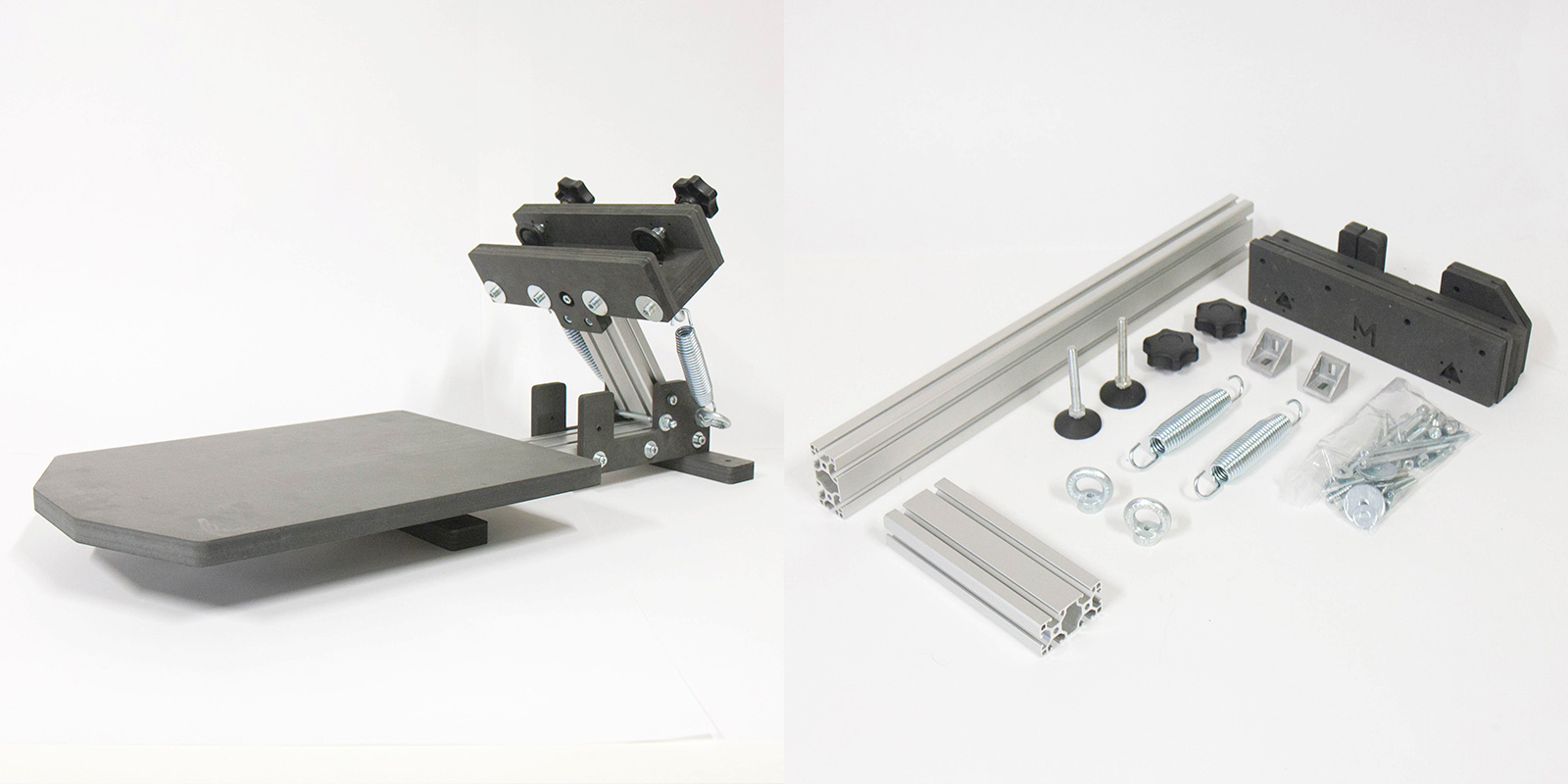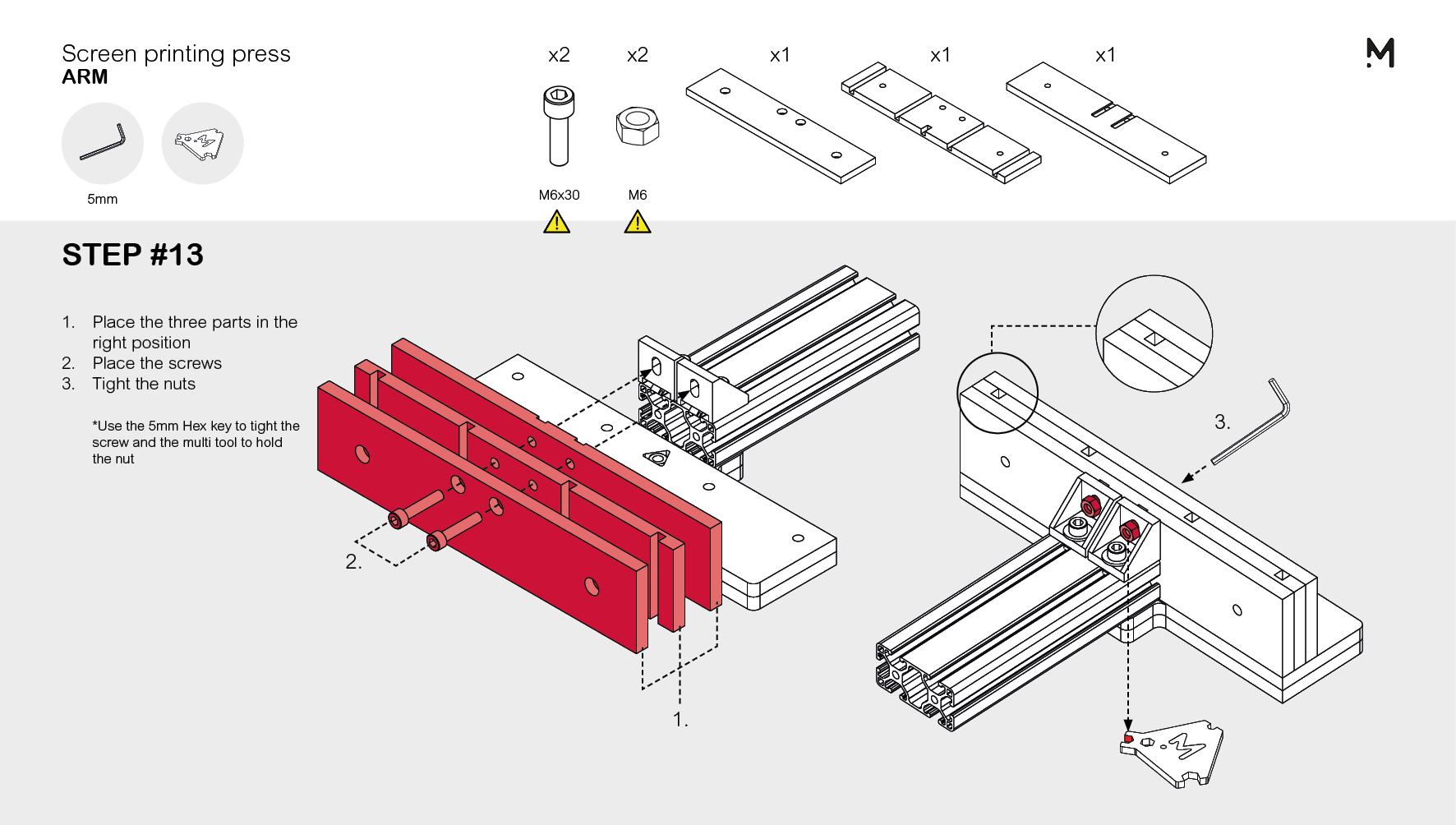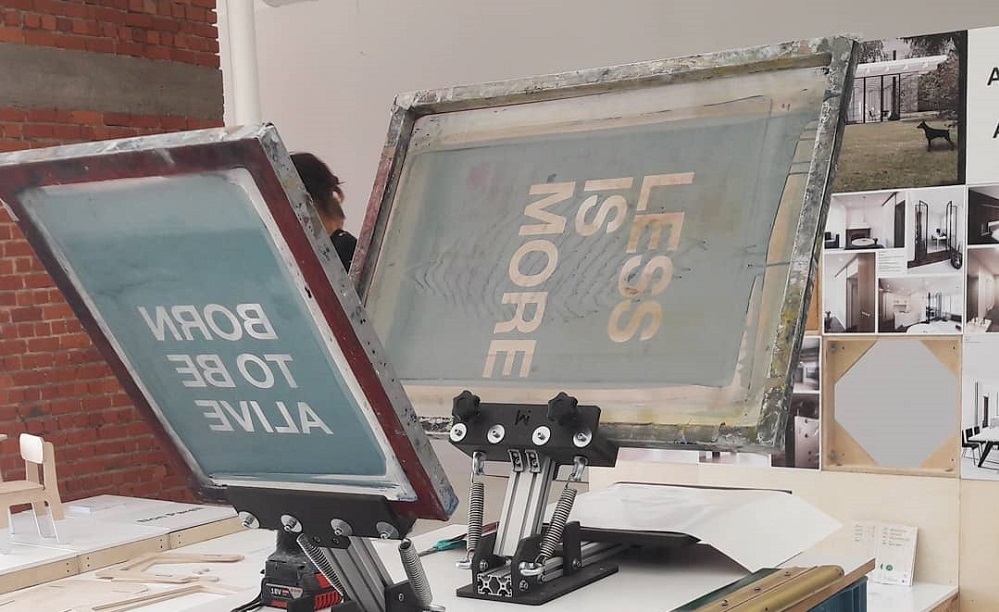MEKANIKA

Useful information
- Team members
- Maxime Gravet Martin Duchêne Roldan Descamps
- Country
- Belgium
- Keywords
- screen printing open source tool modularity accessibility education
Short Description
A screen printing press that can be manufactured and assembled locally, anywhere in the world.
Detailed Description
We created Mekanika with the wish to facilitate local communities' access to manufacturing processes, through open-source tools and quality educational content. All the tools we design are entirely modular, highly repairable and follow the core principle of open manufacturing: “design global, manufacture local”.
With these core principles in mind, we decided to create our first tool: a screen printing press. It consists of a majority of standard parts, very easy to source online, and of a few specific parts used as connectors. These specific parts can be manufactured using CNC milling, a common digital technology that we see rapidly spreading around the globe.
This tool allows to make one-colour prints on many different substrates. It comes with a printing board specially designed to hold t-shirts, but it can be easily changed to start printing on other clothing sizes or on other materials, such as woven fabric, metal, paper, plastic, wood, glass, ceramics or leather.
Project Details
- Does your design take social and cultural challenges and human wellbeing into consideration?
The recent years have seen a rise in entrepreneurial initiatives, followed by a multitude of ideas and projects. However, despite the development of many support structures for young entrepreneurs, many are blocked at the time of taking action. Indeed, the step of realizing something, materializing an idea is often crucial. It is expensive, time-consuming and difficult to control all along the process.
Yet, during the very same years, the Maker community and a great deal of DIY initiatives showed us the possibility of “making” differently, especially by means of new digital tools. Suddenly, the required time to prototype an idea collapses, the transportation costs are inexistent and the development of the product stays completely under control.
This realisation drove our wish to design tools and machines, along with online tutorials and videos to explain how to use them properly. We believe that there is a need to make certain manufacturing processes more accessible and understandable, in order to help creative people get their ideas out there. When tools and machines are more accessible, objects tend to travel less and local networks of artisans, artists or small start-ups emerge. As we see it with food and urban farming, the relocalisation of some production inside cities is a necessity.
- Does your design support sustainable production, embodying circular or regenerative design practices?
Designing a modular object being assembled by the end-user is not an innovation in itself and is currently being used by many successful companies. We can indeed see many key advantages of this approach:
1. transport is optimised by the possibility of delivering flat-packed.
2. assembling the kit allows the user to take part in the creation process, adding real sentimental value to the object and understanding how it works.
3. replacing worn out parts is greatly facilitated.Nowadays, all these values are even more relevant in an industrial context where planned obsolescence became the standard. Consequently, a question arises: do we really need to produce such a large quantity of object? Moreover, an immense quantity of identical objects, almost impossible to repair?
This allows us today to rethink how to design sustainable and accessible objects:
1. designed for disassembly and using standard parts when possible, improving the recyclability of the object and the reusability of its components.
2. using simple and available manufacturing processes, in order to produce locally from any part of the world.
3. offering transparent access to drawings and documentation.
- Does your design use principles of distribution and open source?
The use of the term open source originated with software but has expanded beyond that sector. It covers now every other open content and forms of open collaboration, such as at the development of physical products. It is a model that we decided to embrace by designing products that are freely available to the public and that can be modified and distributed by anyone. We believe in the strong necessity of having such models in a product development cycle, in order to produce objects that are more centred on the real needs of our society.
Images


